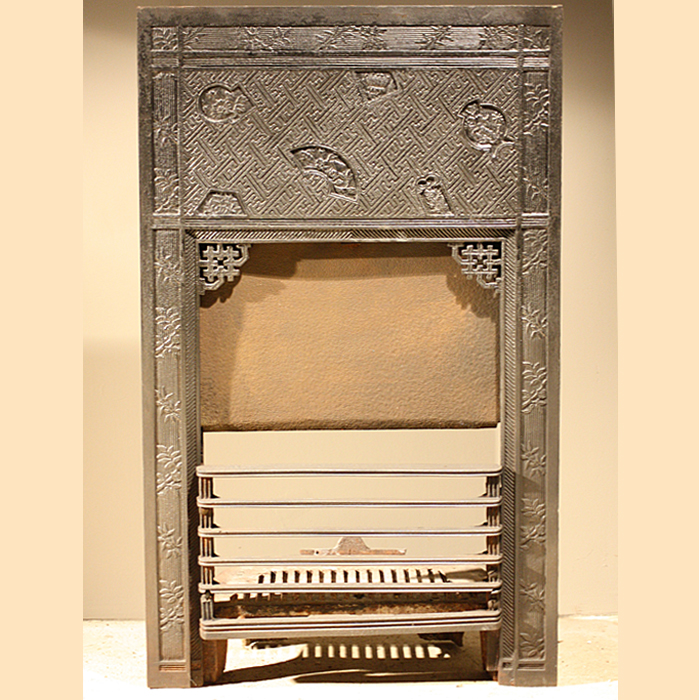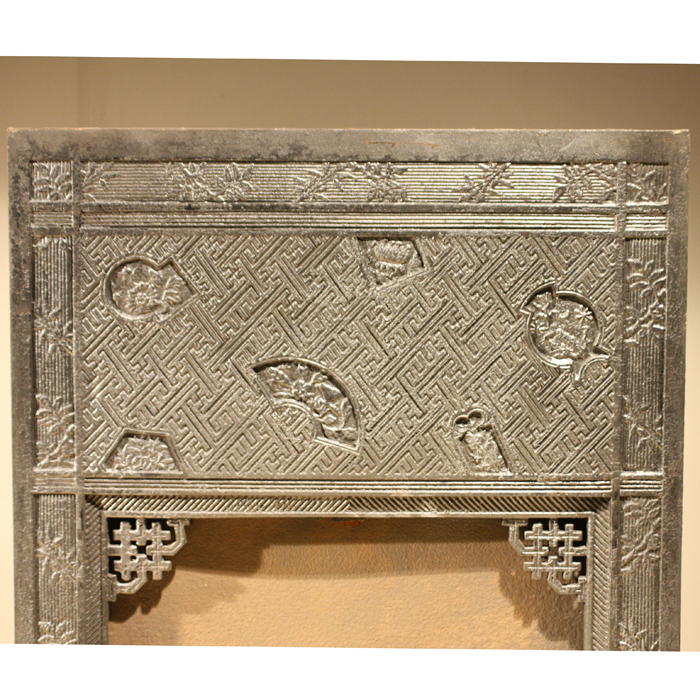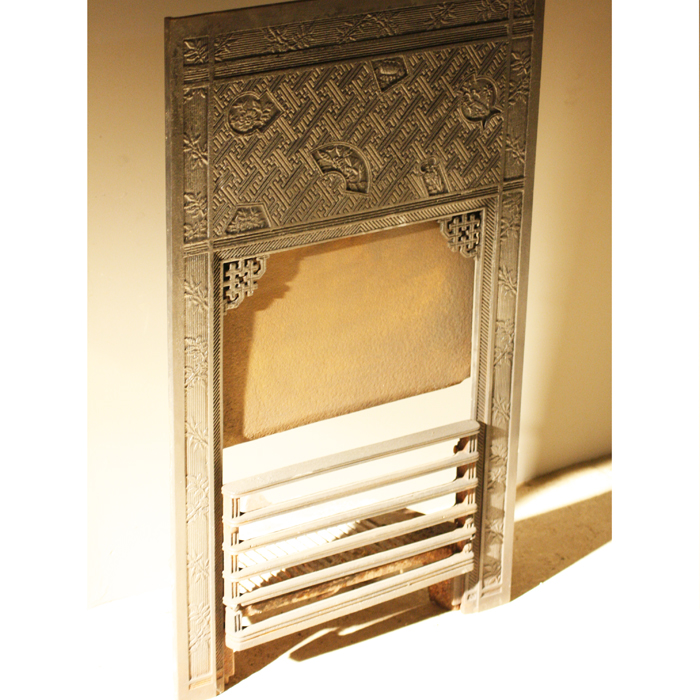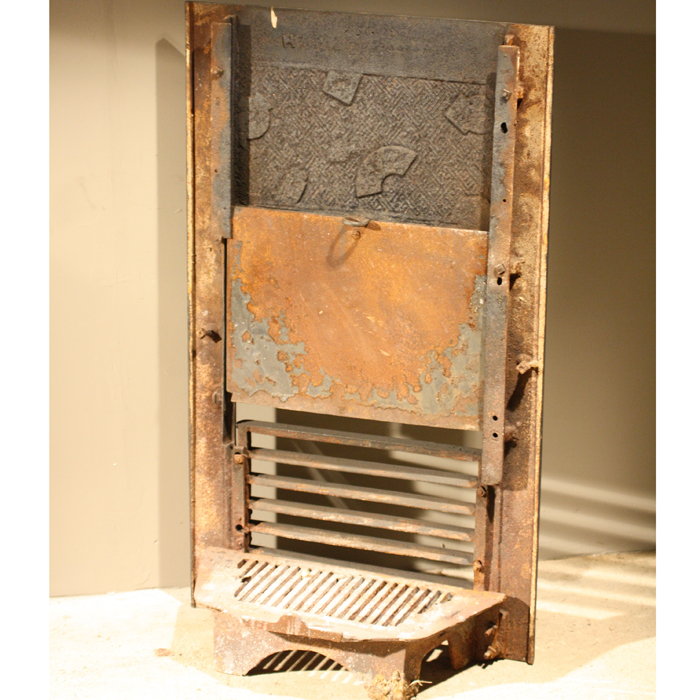Archived Stock - This item is no longer available
A Victorian cast iron “Parson’s grate”,
the facade cast with diapered cross-hatchings in relief, interspersed with various polyform "mon", each incorporating Japanese inspired naturalistic plant forms and blossoming boughs, the reeded border framing the rectangular aperture with pierced fretwork to the corners and closed by the operational guillotine shutter above the reeded rails, a later grille is attached behind the bars, (no firebrick salvaged as is usual with Jeckyll stoves),
SOLD OUT
This “Parson’s Grate” is one of the more unusual designs from the extraordinary output of the great Victorian designer and architect Thomas Jeckyll. The asymmetry of the stamped blossom motifs – crescents and angular cartouches, is bolder than the more usual circular ‘mon’ of his earlier patterns.
LASSCO has enjoyed the buying and selling of numerous designs of these revolutionary stoves over the years. In their day – from the 1870’s they were very popular. They represented an innovative way of burning coal (as proposed in a long correspondence in The Times by a writer with the nom de plume “A Country Parson”), they were decorated with the beautiful relief-work inspired by Japanese blue and white porcelain.
Jeckyll, an established architect in East Anglia, formed a long relationship with a Norwich Foundry “Barnard, Bishop and Barnards” whose outlets in Norwich and Queen Victoria Street in London distributed these fashionable designs widely. The association between designer and foundry continued with the great world fairs of the 1860’s and 70’s – particularly London with his “Norwich Gates” in 1862 and later in Philadelphia and Paris where Barnards wowed the buying public with a two-storey cast iron Japanese-style pavilion – built to Jeckyll’s designs.
The “slow combustion stoves” and their accessories were the great commercial success.




